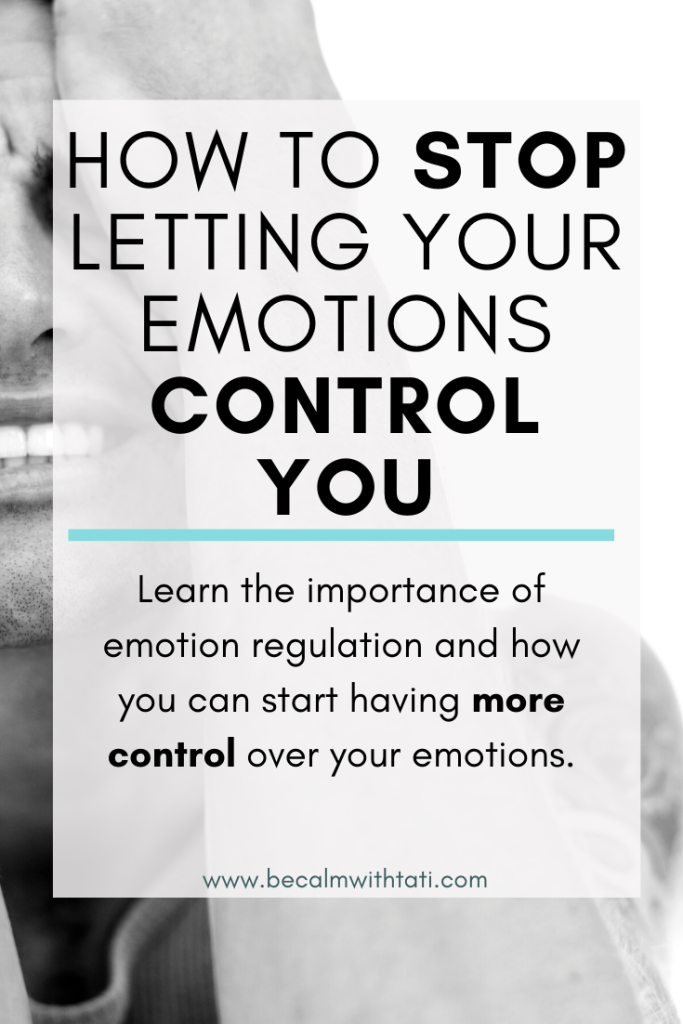The Skill of Feelings Control: Achieving Equilibrium in Disorder

In a world which often seems chaotic and unpredictable, mastering the art of emotional control can be one of the most skills you nurture. The ability to remain calm under pressure, respond thoughtfully rather than react impulsively, and maintain your composure during difficult conversations is crucial not only for personal well-being but also for fostering healthier relationships and enhancing professional performance. Emotional regulation is a base upon which resilience, mental health, and effective leadership are built.
Numerous individuals wrestle with their emotions, especially in difficult situations. However, understanding the science behind emotional regulation can unlock a path to greater self-awareness and control. From recognizing emotional triggers to employing mindfulness practices, there are numerous strategies that can help you boost your emotional control and navigate life's ups and downs with elegance. If you are looking to handle anger in a healthy way, stay positive when things go wrong, or teach emotional control to children, this article will walk you through effective ways to achieve balance despite in the most chaotic circumstances.
Effective Techniques for Mood Regulation
Emotional control is essential for managing life's obstacles successfully. One of the simplest techniques to boost emotional control is mindfulness practice. By being aware in the moment and observing thoughts and feelings without judgment, individuals can cultivate a mental space that allows for better decision-making. Simple mindfulness exercises, such as focusing on the breath or noticing the sensations in the body, can significantly diminish impulsive reactions and help preserve composure during high-pressure situations.
Another powerful technique is recognizing emotional triggers. Knowing what specifically provokes intense emotional responses allows individuals to prepare and strategize for these moments. Keeping a journal to note situations that cause strong feelings can illuminate patterns and help in controlling reactions. When faced with known triggers, having a plan to step back or employ calming strategies can encourage a more measured response.
Lastly, incorporating specific breathing techniques can provide immediate relief in high-pressure situations. Practicing focused breathing exercises, such as the box breathing technique, where one inhales for four counts, holds for seven, and exhales for eight, can ground individuals and stabilize their emotions. This bodily response reduces anxiety and restores a sense of calm, making it simpler to tackle challenges with a focused mindset and balanced emotions.
The Significance of Personal Insight and Presence

Self-knowledge is the bedrock of emotional regulation, allowing people to acknowledge their sentiments and understand the effect of their states on one’s self and those around them. By paying attention to our voices within and feelings, we can detect patterns and stimuli that result in reactivity. This enhanced awareness paves the way for better control of our emotions, enabling us to react mindfully instead of responding without thought. how to respond instead of react -understanding equips us to manage challenging situations more effectively, ultimately fostering better relationships and bettered mental health.
Embedding mindfulness techniques into our lives further enhances emotional regulation. Mindfulness encourages us to stay present and connected, helping to reduce tension and overreactions in high-pressure situations. Techniques such as mindfulness practices, deep breathing, and observational awareness enable us to disconnect from strong emotions and assess our responses in a collected manner. This practice enhances emotional stability but also improves our capacity to cope against stressful events, allowing us to hold steadiness in the presence of hardship.
Combining self-awareness with mindfulness creates a dynamic pairing for emotional mastery. As we improve at noticing and controlling our emotional cues, we also grow a greater capacity for understanding towards other people. This comprehension encourages improved interaction and relationships, which are essential in both personal and professional relationships. By cultivating these skills, we enhance our skill to maneuver life's obstacles with grace, resulting in a more harmonious and rewarding existence.
Managing Emotions in Challenging Situations
In the most challenging moments, emotional control becomes a vital resource that can either define the outcome or contribute to chaos. When faced with unforeseen stress, such as job deadlines, personal conflicts, or critical feedback, it's essential to maintain composure. Techniques such as breath control or stabilizing practices can provide instant relief and help regain concentration, allowing for a clearer perspective that promotes improved decision-making during stressful times.
Handling difficult conversations can also be a challenge of emotional endurance. Whether it's a disagreement with a loved one or a tense discussion at work, the ability to manage emotions not only fosters more productive dialogue but also enhances relationships. Engaging in self-awareness in these encounters allows individuals to recognize rising emotions and respond thoughtfully rather than react impulsively.
Additionally, developing emotional control during high-pressure situations strengthens resilience and adaptability. Embracing practices like being present and consistent reflection helps build a foundation of emotional strength. By learning to manage feelings, individuals can turn challenges into personal development opportunities, ultimately leading to better outcomes in both personal and professional spheres.
